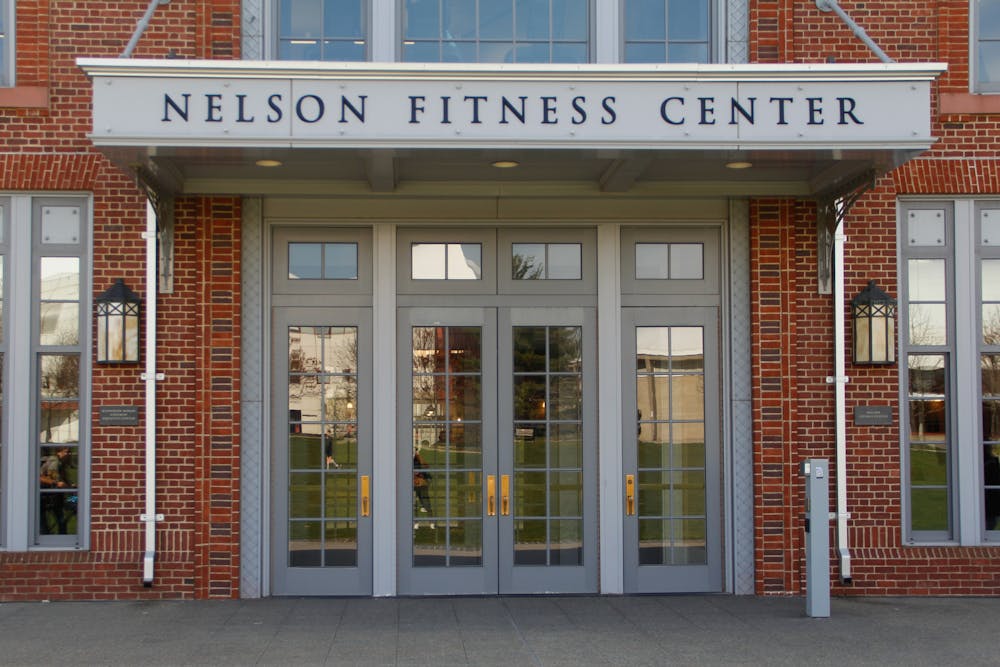The Division of Athletics and Recreation announced the formation of a wellness and performance ecosystem in a Feb. 21 press release, aiming to create support systems for student-athletes through sports psychology, nutrition, medicine and wellness programming.
“We’re focusing on truly a holistic approach where we’re wrapping the student athlete with expertise, knowledge and programming that can help them realize their potential,” said Joe Walsmith ’94, senior associate director of athletics, wellness and performance.
Walsmith is one of three new hires announced by the division to staff the new ecosystem. He is joined by Matt Whalen, associate director of athletics, sports medicine and Emilie Burgess, dietitian and nutritionist.
The new staff will be “instrumental in creating an innovative and interdisciplinary approach to performance and holistic care,” Shoshanna Engel Lewis, assistant vice president for athletics and recreation, as well as governance and performance, said in the press release.
“Brown actually really excited me with the new addition (of) the ecosystem,” Whalen said in an interview with The Herald. “The addition of sports psychology, (a) sports dietician and also additional staff to support the health and wellness of our team was really a draw for me.”
Whalen served three years as associate director of sports medicine at Harvard. He also served as an assistant athletic trainer at Babson College and as an athletic trainer at Boston College.
“The whole space of human well-being and human performance is something I’ve really been fascinated (by) for as long as I can remember,” Walsmith said, adding that his new position entails “the kind of work that I have a ton of interest in and passion for.”
Walsmith, who has over 20 years of experience in the field of health and life sciences, previously conducted research on the intersection of aging, inflammation and nutrition at Tufts University and worked for the Global Life Sciences Practice of L.E.K. Consulting, a global management consulting firm.
For Walsmith, the University’s academic culture contributed to the position’s appeal. “The Brown student body in general, in my experience, is defined by inspired learning and inspired learners, and those who want to own their academic journey,” he said.
He added that the “same level of curiosity and interest is something that is extremely valuable in athletics and (a) student-athlete setting as well.”
For Whalen and Burgess, part of the appeal of their new positions was the University’s unique approach to student-athlete care.
The University “really values clinical care and … making sure that every student-athlete feels that they have the support that they need,” Burgess said. “Sometimes certain schools may put more emphasis on other … care aspects.”
Burgess is a board-certified sports dietitian who specializes in sports performance nutrition and eating disorders among athletes. She previously worked as a clinical nutrition specialist in the Division of Sports Medicine and the Female Athlete Program at Boston Children’s Hospital, as well as a registered dietitian at the Cambridge Eating Disorder Center.
Burgess added that while the University has previously had dieticians on its staff, the performance ecosystem program plans to build a sports nutrition department specifically.
“Most collegiate programs have multiple dieticians on staff, so my goal would be to build not only a department but also a team,” she said.
The Division of Athletics will also form a strength and conditioning team and is slated to bring in a sports psychologist in April, according to Walsmith. The division plans to adopt a “train-the-brain” approach which includes a focus on the importance of mindset and mindfulness, he added.
The performance ecosystem aims to bring new, science-based approaches that will optimize training, according to Walsmith. The program aims to prepare student athletes with a toolkit to optimize their recovery after games and training, he added.
Walsmith added that he sees the ecosystem as a resource to “help our teams compete at the highest level but also to empower student-athletes with evidence-based practices, habits (and) knowledge that will help them while they're here at Brown (and) also well beyond.”





